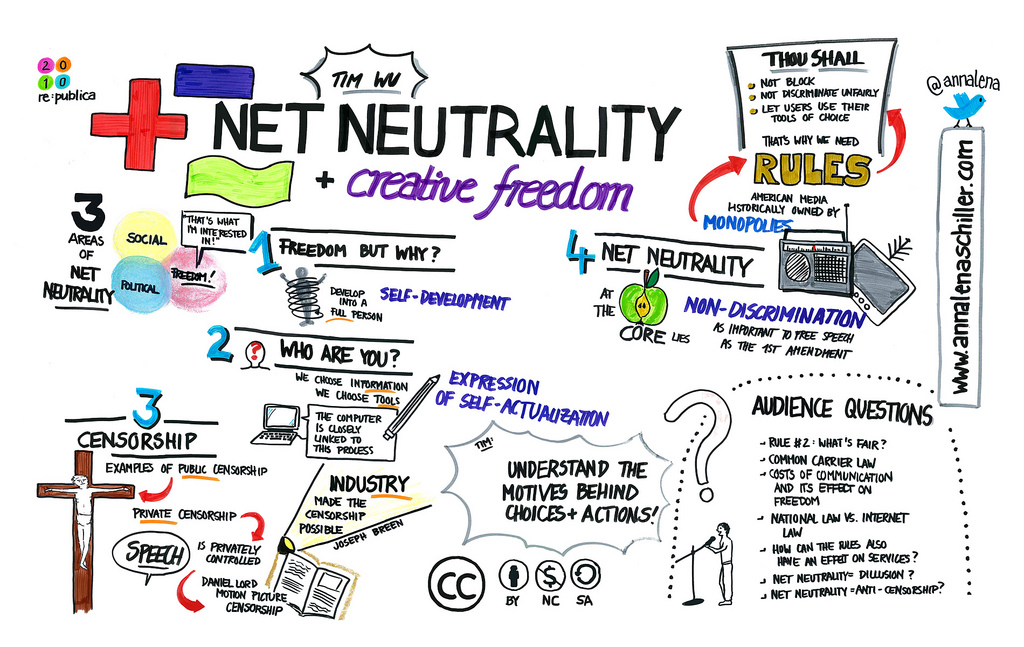Appeared in the Toronto Star on March 10, 2008 as Everybody is Jumping on the Levy Bandwagon From levies on blank CDs to tariffs on background music played in dental offices, Canada has long held the reputation of being a haven for policies that support cultural and creator groups through […]

Net Neutrality And Creative Freedom (Tim Wu at re:publica 2010) by Anna Lena Schiller (CC BY-NC-ND 2.0) https://flic.kr/p/7VfazT
Net Neutrality
Canada Stuck in the Slow Lane on Traffic Shaping Debate
My weekly technology law column (Toronto Star version, homepage version) focuses on the slow response of Canadian officials to the issue of traffic shaping. Last fall, the Associated Press and the Electronic Frontier Foundation reported that Comcast, the largest cable provider in the United States, was actively interfering with network traffic by engaging in traffic shaping. The practice – largely undisclosed by the company – resulted in reduced bandwidth for peer-to-peer file sharing applications and delayed the delivery of some Internet content. The revelations sparked an immediate outcry from the public and U.S. officials. Class action lawyers filed lawsuits, members of Congress introduced legislation mandating greater transparency and neutral treatment of Internet content and applications, state law enforcement officials issued subpoenas demanding that Comcast turn over information on its network management practices, and the Federal Communications Commission, the national telecommunications regulator, launched hearings into the matter.
Last week, the FCC devoted a full day to the issue as companies such as Vuze – an online video provider that uses peer-to-peer technology – along with public interest groups argued that the Commission needed to use its regulatory muscle to ensure greater transparency in the broadband market and to preserve an open, non-discriminatory Internet. While the FCC established ten principles for network operators to ensure network neutrality in 2005, there is mounting pressure in the U.S. for it to do more. Given that many believe that the Comcast’s practices violated the FCC principles, regulatory and legislative responses to the lack of transparency in ISP network management may be on the way.
While the U.S. appears to be rapidly moving toward legislative and regulatory action, Canadian regulators appear stuck in the slow lane.
Canada Stuck in the Slow Lane on Traffic Shaping Debate
Appeared in the Toronto Star on March 3, 2008 as Canada Stuck in Slow Lane on 'Traffic Shaping' Last fall, the Associated Press and the Electronic Frontier Foundation reported that Comcast, the largest cable provider in the United States, was actively interfering with network traffic by engaging in traffic shaping. […]
Canadian Heritage Committee Report Raises Net Neutrality
The Standing Committee on Canadian Heritage released its much anticipated report on CBC and public broadcasting. While the immediate attention is understandably on the funding-related recommendations, the report features several pages on network neutrality. The Committee notes that: Network non-neutrality could have significant consequences for CBC/Radio-Canada since it is not […]
NUPGE Calls for Net Neutrality Consultations
The National Union of Public and General Employees has issued a call to the government to hold open, public consultations on net neutrality.






